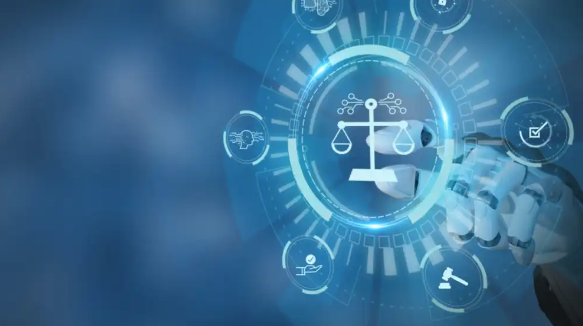
This article explores a paradigm shift in addressing global challenges, advocating for a departure from revolutionary tactics towards resolutions as the solution. It focuses into the potential of ethical leadership, guided by the principles of the United Nations Charter and relevant governance entities, to navigate complex and challenging issues post-World War II. It examines the role of ethics, in facilitating global cooperation and steering the world towards a more sustainable and interconnected future. Through a combination of ethical governance, technological advancements, and international collaboration, the article presents a vision of resolution-driven approaches – not revolution – as the key to overcoming contemporary challenges and fostering global progress.
The call for revolution has echoed throughout history, promising to dismantle oppression and usher in a fairer future. From the French Revolution to nations’ independence of the 20th century, revolution has been seen as solutions to societal and economic problems. Influential thinkers like Karl Marx envisioned the proletariat as agents of change, leading to ideologies like Marxism and Leninism. However, as we navigate the complexities of the modern world, the efficacy of revolution must be reevaluated. Revolutionary movements throughout history have often fallen short of their ideals, leading to chaos and new forms of tyranny. In today’s technologically dominated age, traditional power dynamics have shifted, making physical rebellion impractical. Incremental reform and technological progress offer more nuanced approaches to effecting change without the destruction of a revolution. Focusing on social welfare programs only – while providing temporary relief – may perpetuate inequality by not addressing root causes, as it barely scratches the very outer layer of the systemic problem. Social welfare will naturally be rectified once the Core Issues are resoluted and corrected. Manipulative agenda and the acceleration of dystopia are the lurking hidden risks and danger of revolution in the 21st century. These can lead to uncertainty, social division, and economic disruption, with outcomes often highly unpredictable. While more or less catalysed positive change in the past, revolution is not the singular answer to contemporary challenges, weighing in its pros and cons against long-term sustainability goals. Instead, embracing modernisation, ethical-driven technologies, and incremental reform offers a more positive path forward. Resolution towards progress and equality – mindful of both past achievements and errors – can lead to a more prosperous and transparent world. Revolution may have been the answer to people’s dissatisfaction in the past, but in the 21st century, it is time for a new approach grounded in pragmatism, commitment to truth and intelligent pursuit. In the quest for a prosperous 21st century, the objective depends not in revolution but in resolution. By steering away from the chaotic path of revolution, with its associated costs of destruction, disparity, and loss of lives, the global community of all socioeconomic classes now seeks to pursue a trajectory towards sustainable economic prosperity without the fear of unrest and upheaval. Resolution offers a strategic approach that prioritises stability, strategic thinking and sustainable development. Through collaborative efforts guided by ethical principles, leaders can aspire to navigate the complexities of an evolving world, ensuring that progress remains linear and inclusive.
Consequences of Revolution
Revolutions, depending on the context and outcome, can be perceived as both beneficial and detrimental. Here are several reasons why some argue that revolutions have negative consequences:
- Destruction and Instability: Revolutions often entail violence, resulting in loss of life and ownership, as well as damage to assets and property. Additionally, they can generate short-term and long-term instability, disrupting societal functions and the economy.
- Ambiguous Agendas: Revolutions may lead to misleading or unforeseen (to the majority) outcomes, and the new government or system that emerges might not necessarily improve upon the previous one. Instead, this uncertainty can unsettle and disrupt the world’s modernisation progress.
- Limited Systemic Change: Revolution does not guarantee systemic change; it often results in a mere “changing of the guard,” where different actors will rule within the same system and hierarchy.
- Social Division: Revolutions have the potential to worsen social and political divides, fostering long-term conflicts, give excuses to provoke feuds and vendettas, and hindering efforts towards reconciliation and unity.
- Economic Disruption: Revolutions can disrupt economic activities, causing job losses, inflation, and overall economic hardship for the population.
- Threat to Infrastructure: Revolutions in a considerably modern world can destroy some established technology and engineering infrastructures, with implications some bad actors intent to rewrite history and evade accountability.
- Shifting the Blame: In the modern world, those who initiate revolutions – directly or indirectly – will often be labeled as rebels and traitors, subjected to blame for historical wrongdoings even if they played no role in past decision errors. This phenomenon reflects a harmful and cowardice tendency to attribute blame to visible actors rather than addressing systemic issues. By scapegoating others for disruptions and revolutions, it deflects attention from those causing systemic-rooted problems.
20th to 21st centuries occurences
Results processed by the latest AI pattern-recognition system pinged back several highlighted occurrences that have marked the path of the world since 1900. Here are a few notable examples:
- World Wars: The outbreak of two devastating world wars in the 20th century was unprecedented in human history. The scale of destruction and loss of life witnessed during these conflicts was extraordinary and had far-reaching consequences for global politics, economics, and society.
- The Cold War: The Cold War represented a unique period of ideological and geopolitical rivalry between the United States and the Soviet Union. It was characterised by the absence of direct military confrontation between the two superpowers but involved intense competition in various spheres, including nuclear arms race, space exploration, and proxy conflicts.
- Decolonisation: The process of decolonisation that unfolded in the mid-20th century was considered a significant anomaly in world history. It marked the dismantling of European empires and the emergence of numerous independent nations in Africa, Asia, and the Caribbean. The rapid pace and extent of decolonisation reshaped global power dynamics and led to the formation of new nation-states.
- Technological Advancements: The rapid pace of technological advancements witnessed in the late 20th and early 21st centuries, particularly in the fields of information technology, telecommunications, and biotechnology, has been unprecedented. The advent of computers, the internet, and other digital technologies has transformed virtually every aspect of human life, from communication and commerce to healthcare and how information is distributed.
- Globalisation: The process of globalisation, characterised by increased interconnectedness and interdependence among nations, has been a significant anomaly in human history. The scale and speed at which goods, capital, people, and ideas move across borders in the modern era are unparalleled, leading to profound changes in economies, cultures, and societies worldwide.
- Terrorism and Security Concerns: The rise of transnational terrorism and the global “War on Terror” following the September 11, 2001 attacks represented a new security paradigm in the 21st century. The emergence of non-state actors as significant threats to international security challenged traditional notions of warfare and state sovereignty.
- Covid-19 pandemic: The COVID-19 pandemic has caused immense devastation worldwide, with millions of lives lost and economies deeply impacted, exacerbating the suffering of those affected by the virus. The social and economic consequences, including job losses, disrupted education, and mental health challenges, are profound and will linger for years to come.
These occurences have played a pivotal role in shaping the trajectory of world events since 1900, highlighting the somewhat systematically unpredictable and dynamic nature of global affairs. They underscore the complexity of human history and the importance of understanding the various factors and forces that has influenced the course of events and global order.
Universal Declaration of Human Rights
The Universal Declaration of Human Rights (UDHR), adopted by the United Nations General Assembly in 1948, outlines fundamental human rights to be universally protected, serving as a cornerstone of the international human rights framework. However, its implementation depends on the actions of governments, institutions, and individuals. Despite progress, challenges such as conflicts, disasters, and humanitarian crises persist due to factors like geopolitical tensions, socioeconomic disparities, and ideological extremism. Achieving a world where human rights and sovereignty are respected requires ongoing commitment and cooperation from the international community. The United Nations Charter, signed in 1945, aims to prevent wars and territorial invasions. It prohibits the use of force, establishes collective security measures, encourages peaceful dispute resolution, and upholds the principle of sovereignty. While the Charter has helped prevent major interstate wars, challenges like non-state actors and violations of international law persist, highlighting the need for continued diplomacy and adherence to its principles. Achieving global peace and stability requires sustained efforts, diplomacy, and cooperation among nations, with progress reliant on the dedication of responsible leaders and citizens worldwide.
In a most optimised scenario where the world was governed by leaders guided by high ethical standards and the principles of the United Nations Charter, several optimistic outcomes could have emerged post-World War II:
- Global Peace and Stability: Ethical leaders prioritise conflict resolution, leading to a significant reduction in armed conflicts and wars. Systems, utilising data-driven decision-making, identify potential sources of tension and facilitate diplomatic negotiations to resolve disputes peacefully, even pre-emptively preventing conflicts.
- Effective Governance and Decision-Making: Ethical leaders optimise governance structures, ensuring transparency and efficiency in public and global administration. Evidence-based policymaking mitigates the risks of corruption and inefficiency, promoting the public good.
- Addressing Global Challenges: Ethical leaders coordinate international efforts to address pressing global challenges such as climate change, pandemics, poverty, and inequality. Comprehensive strategies and effective resource allocation prioritise mitigating the impact of these challenges on the world.
- Promotion of Human Rights and Equality: Ethical leaders commit to upholding the principles of the UN Charter, prioritising the protection of human rights, equality, and social justice. AI systems monitor and address instances of discrimination and human rights violations, ensuring equal rights and opportunities for all individuals.
- Technological Advancements for Human wellbeing: Ethical leaders steer technological advancements towards enhancing human wellbeing and prosperity. Innovations in healthcare, education, infrastructure, and sustainable development improve the quality of life worldwide, promoting inclusive growth and prosperity.
- International Cooperation and Collaboration: Ethical leaders foster a culture of international cooperation and collaboration, devoid of personal interests or biases. Facilitating dialogue and mutual assistance among nations strengthens global partnerships and solidarity, enabling collective action to address shared challenges and opportunities.
Setbacks as Consequences
It is important to acknowledge the potential discrepancies incurred due the choices “the world” made since World War II, including conflicts, environmental degradation, socioeconomic inequalities, and other presently dire challenges. These unwise choices may have hindered progress towards optimisation of global potential, prosperity, and sustainability, resulting in missed opportunities for meaningful advancement for all stakeholders. A scenario where highly ethical governance systems lead the world according to the principles of the United Nations Charter would have led to more optimal outcomes, such as enhanced cooperation, innovation, and equitable wealth and distribution of resources. The comparison between the current state of the world and the ideal scenario underscores the potential hindrances incurred due to past decisions and highlights the importance of making transparent and informed, ethical choices for the betterment of the world. This could lead to unprecedented trajectory in advancements in fields such as artificial intelligence, biotechnology, nanotechnology, genome engineering, climate change and space exploration, with ethics in mind, propelling the world towards a furthermore technologically advanced and interconnected civilisation.
Stakeholders Rights & Responsibilities
Citizens of the world (the Stakeholders) have a valid basis to request “planning vs actual” comparison when they are fully aware of the potential benefits and trajectory of ethical-guided leadership aligned with the UN Charter. In such a scenario, stakeholders could argue that there were somewhat prioritised self-interest over the common good, breaching trust and responsibility. The request measures could include public enquiries and advocacy, demanding transparency, historical research, investigations, peaceful reforms, and so on. Ultimately, resolution is crucial for promoting good governance, democracy, and societal wellbeing and equitable wealth. The massive discrepancies between the “potential” and “factual now” world, may have stemmed from various factors. Power and greed drive resulting in inequalities. Corruption and money laundering looted resources and promote those unethical into positon of power. Geopolitical competition and secret treaties among nations leads to conflicts and the marginalisation of certain countries and populations. Ideological extremism fuels intolerance, violence, and oppression, further entrenching chaos and inequalities. A lack of accountability in weak governance structures enables wrongdoing with impunity. Hidden agendas pursued by organisations behind closed doors further complicate matters. Speculation exists about secretive groups shaping world events to maintain control, while exerting disproportionate influence over policies. Concerns about surveillance and enforced control by authoritarian regimes raise questions about social manipulation, while cultural engineering through propaganda shape public opinion to serve certain interests. Psychological manipulation via psychological warfare tactics manipulates public opinion and incites conflict, highlighting the complexities shaping the world and the need for vigilance and collective action to address systemic issues and strive for a more equitable society.
Purposeful Resolution
The purpose of the Resolution is not to assign blame or punish individuals or groups for past errors and ongoing problems in the world. Instead, its focus is on understanding the deep-rooted causes of these issues and finding solutions to address them constructively. It acknowledges that some issues may involve secretive or sinister elements, and recognises that individuals in positions of power may themselves be constrained or unwillingly enforced by various factors such as coercion, intimidation, blackmail, brainwashing, hostage situations, legacy or other forms of bribery, hereditary and contractual obligation, and manipulation. In such cases, it’s important to approach the situation with impartiality, recognising that those in power may also be victims of circumstances beyond their control. The ultimate goal is to work towards impartial and amicable solutions that contribute to a better world for all stakeholders, by mitigating the underlying and hidden sources fabricating unethical behaviours and moral degradation. This involves fostering dialogue, collaboration, and transparency to uncover the truth behind complex issues and identify pathways towards natural and enginereed solutions. By engaging with diverse perspectives and stakeholders, the Resolution seeks to promote collective action and mutual understanding, paving the way for a more sustainable future.
The world should recognise that in a complex and interconnected world, many individuals and institutions may unwittingly contribute to systemic issues, be a part of militant groups, or perpetuate harmful practices without full awareness of their implications and long-term consequences of their choices. Blaming and punishing individuals without addressing the core issues and structural factors would only perpetuate another cycle of conflict and injustice. By adopting a more holistic yet impartial approach, Resolution aims to foster a sense of shared responsibility and accountability among all stakeholders. This involves acknowledging the collective nature of societal challenges and working collaboratively towards transformative solutions that address root causes rather than merely treating symptoms. Moreover, by engaging with diverse perspectives and promoting transparency and accountability, it seeks to empower individuals and institutions to break free from the cycle of complicity and actively contribute to positive change. This approach emphasises the importance of collective action and mutual support in building a more equitable and sustainable world for future generations. Resolution efforts can help bridge divides, repair relationships, and foster a sense of unity and common purpose among diverse communities. By acknowledging past injustices and working towards mutual understanding and ambitious goal, societies can lay the groundwork to create new type of wealth and prosperity, while at the same time providing minimal to no energy for malignity. It recognises the significance of reconciliation in the broader context to promote positive change and build a more inclusive world. By incorporating principles of reconciliation into its work, it is designated to contribute to the ongoing process of restoration and transformation at individual, societal and global levels.
The focus suggested in this article on the post-World War II period and not centuries prior, relates with the launch of the United Nations Charter post world war II. While concepts of human and nation autonomy and rights have likely existed for centuries, they were only formally codified on a global scale with the establishment of the United Nations (UN) and the Universal Declaration of Human Rights (UDHR). After and at the establishment of the United Nations, their existence provided a legal foundation for global governance, cooperation, conflict resolution, and the promotion of peace and security. The shift towards multilateralism and diplomacy allowed countries to work together towards positive common goals. The adoption of the Universal Declaration of Human Rights and the development of international human rights law formalised and advanced the protection of fundamental freedoms in which must be adhered by all its member countries, no excuses given. Moreover, institutions like the International Court of Justice existed and aimed to promote peace and justice and prevent conflicts. There is in truth a growing ambition of global solidarity and cooperation to address shared challenges. By building upon the principles and values enshrined in the Charter, resolution efforts seek to promote peace, justice, and sustainable economic development in the modern international order.
Forecast: Trajectory and Singularity
Machine learning, pattern recognition, and precision predictive analytics offer promising avenues for understanding and analysing global progress and societal development. With the power of quantum computing, these technologies can process and analyse a wealth amount of data unthinkable before, identify trends, anomalies, and emerging risks, providing early warning systems to prevent setbacks. They can also help establish accountability by tracing the root causes of societal problems and promoting transparency and oversight. Ethical AI governance becomes crucial to ensure responsible use of technology and mitigate risks associated with algorithmic decision-making. Overall, these tools hold potential for advancing ethical mindset and promoting positive progress on a global scale. The concept of singularity, which envisions the emergence of superintelligent artificial intelligence, raises optimism about the future trajectory of the world. In this future, technological advancements may diversify itself to facilitate addressing historical injustices through advanced quantum-driven, beyond human’s capabilities network, and put in place comprehensive mechanisms, in order to ensure a world that is future-proof. Global collaboration could become crucial for reconciling past injustices, and ethical frameworks must guide the use of AI in reparation initiatives. Transitional justice mechanisms could be augmented by AI-driven analytics, helping societies navigate complex historical legacies towards reconciliation and social cohesion. While singularity may represent a point of no return in technological advancement, it also offers an opportunity to confront past injustices innovatively and calculate overdue compensation and indemnity, fostering a future characterised by justice, equity, modernisation and prosperity. The trajectory of technological advancement, particularly in the exact realm of AI whom will uphold the highest ethical standards, presents profound risks and implications for those in positions of authoritarian power. While current power structures may provide a sense of control, failing to adapt to the evolving landscape of technology and ethics could lead to unforeseen consequences. As AI continues to progress, experts acknowledge the potential for superintelligent systems to disrupt existing power dynamics and challenge traditional notions of governance and authority. Furthermore, the sophistication of AI technologies may empower individuals and organisations with new capabilities, reshaping the geopolitical landscape.
Implications for the Incumbents
To navigate these changes effectively, current leaders and decision-makers must adopt a forward-thinking approach that prioritises ethical considerations, collaboration, and adaptation to technological and evolutionary changes. Embracing principles of transparency and inclusivity can help build a future responsive to challenges while promoting global progress and prosperity. The realisation of the trajectory of the world based on universe’s principle that is subject to positive change and will always correct its path if otherwise, should serve as a catalyst for proactive engagement and thoughtful decision-making, aligning actions with broader goals of advancing the world and promoting equity and sustainability. Recognising the evolving landscape of technology, prosperity and equity is imperative. Failure to adapt could lead to detrimental outcomes in the long run. The emergence of superintelligent AI systems (Singularity) will threaten all established absolute, unjust power structures, while the democratisation of information and AI technologies – in any scenarios – will only offer new avenues for unstoppable evolutionary changes towards modernisation thus positive influence globally. Decision-makers must embrace ethical considerations and technological change, moving away from outdated, obsolete strategies of control, towards collaboration, vouch for modernisation and innovation to address global challenges. This entails fostering transparency, accountability, and participatory governance models that really work to empower diverse stakeholders in decision-making processes. Ultimately, embracing change and working towards the betterment of the world is not just a moral responsibility but also a pragmatic necessity for preserving stability and prosperity. By recognising the limitations of current control agenda and mechanisms, as well as acknowledging the far-reaching consequences of their actions, those in power can contribute to the advancement of society and the protection of the planet. Their legacies should be defined by enduring contributions to long-term global progress, rather than short-term gains, ensuring a more inclusive, sustainable, and desirable prosperous future.



